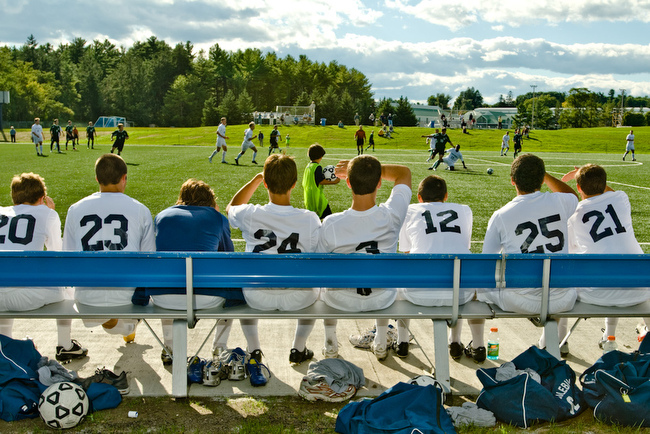

The Bench Experience – Making the most of it! by Elsa Pinto
by Elsa Pinto
The bench, the place most players try to avoid because they all want to play…
Coaches spend a lot of time selecting the 11 players that will be playing believing that those are the best options for that game. It isn’t always an easy selection and, many times, coaches do complain about difficulties to come to a final decision.
When a player sits on the bench, he usually believes that the coach has someone more competent for that role, often they don’t understand the coach’s decision and feel upset and/or angry. So when it’s their time to come play they are unprepared because they have spent their time holding a grudge or having a laugh instead of preparing the game. This results in a poor performance that validates the coach’s initial choice … This is a common situation both at youth and elite level.
If the criteria isn’t clear for both (player and coach), that can lead to serious relationship problems that end up endangering the commitment of the player and his performance levels. It’s important for the coach to have this conversation with a positive approach, so the the players know that even though they are not playing, they still matter.
A player who is not eligible to play should not sit on the bench.
Does this mean that a coach must explain every single time and to every single player why they are being benched? No, but a player does need updated and concrete information about his situation mainly: the coach real expectations, individual adequate goals, prioritizing the skills that need improving so the player is focused on the process that matters.
At the same time, if the coach thinks a player is not good enough it won’t be a good idea to set him apart*, unless it’s definitive. Not only he may be needed (injuries), but also it won’t be good for the club’s finances because, as an active, he will lose market value. Finally, it will not be good for the team because some players will stand by their colleague(s) and the coach will start losing his credibility by abandoning a part of the team.
If you’re a coach your players must know that if they are at the bench they on call at any moment, so they must commit to whatever physical warm up you propose to prevent injuries, and also to pay full attention to the game, especially to the player playing their position while thinking for possible better/alternative solutions to solve the game’s problems, for one thing is the anticipation of the game’s expected difficulties and another are the things that are actually happening.
A coach can utilise some of the game’s events to teach the players sitting at the bench (investment) since they will probably be more able to listen than those playing the game, by doing this a coach will be showing he cares and being productive.
In the end, if a player is often benched he must pay attention to the “often utilised” player and find out “ What is he offering to the team/ coach that i don’t? How can i incorporate those skills in my game so that the coach sees me as a real option?”
Get to know more about Soccer HUB!
Follow us on Facebook!
Leave A Reply Cancel reply
You must be logged in to post a comment.
Categories
Latest Courses
-
9 Lessons
-
1 Lesson
-
6 Lessons
You May Also Like
- Blog
- August 1, 2022
- Blog
- June 3, 2022
- Blog
- May 27, 2022
Developed by Brandit Digital Media Services.






3 Comments
It works very well for me
It works quite well for me
Thanks, it is very informative